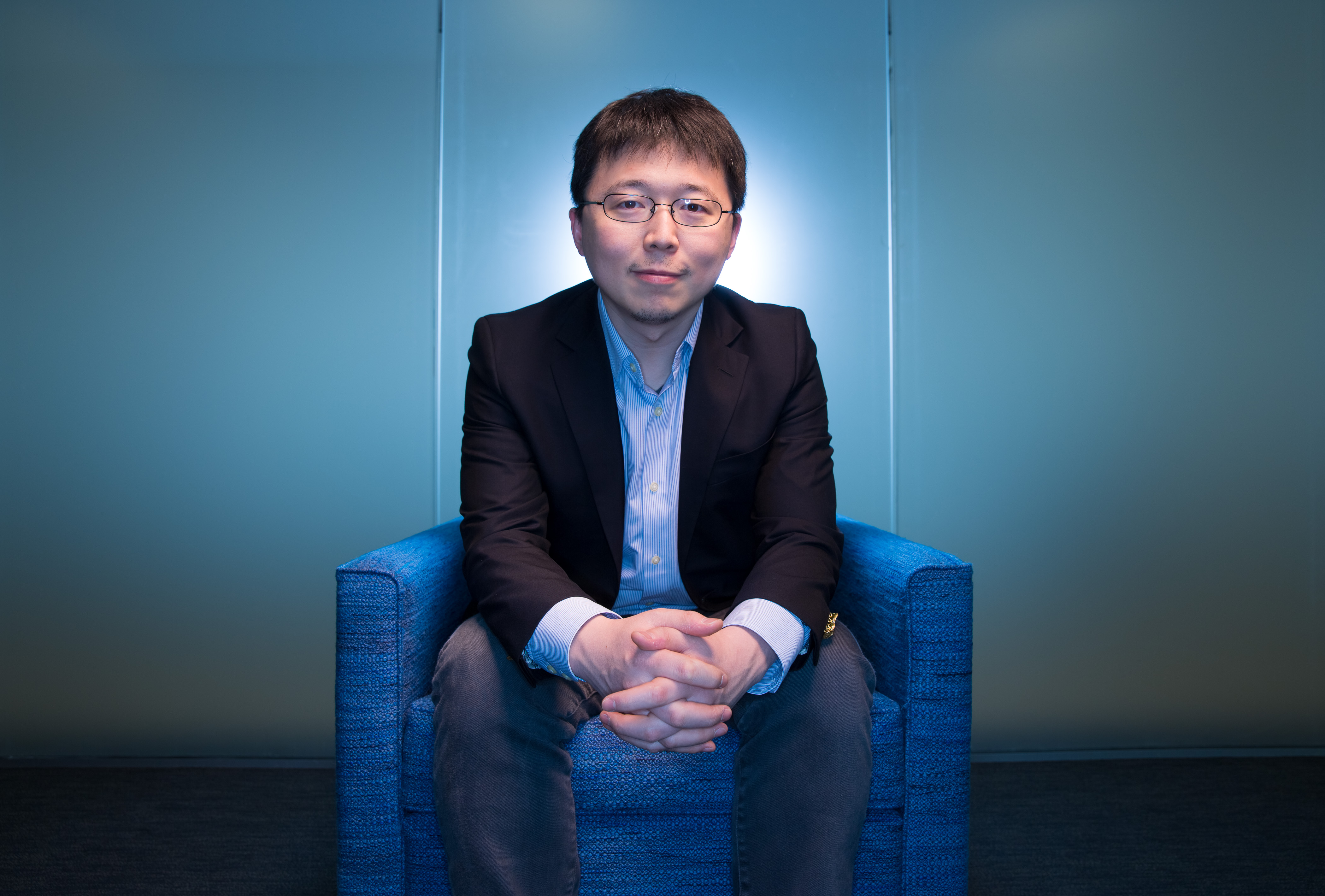
Feng Zhang, the W M Keck CD Assistant Professor in Biomedical Eng, Department of Brain and Cognitive Sciences and Core Member, Broad Institute at the Broad Institute in Cambridge, MA. © Bryce Vickmark. All rights reserved. www.vickmark.com 617.448.6758
Broad/MIT scientist among five honored as pioneers of CRISPR-Cas9 system.
Source: [The Broad Institute | March 23, 2016]
Feng Zhang, a core institute member of the Broad Institute, an investigator at the McGovern Institute for Brain Research at MIT, and W. M. Keck Career Development Associate Professor in MIT’s Department of Brain and Cognitive Sciences, has been named a recipient of the 2016 Canada Gairdner International Award — Canada’s most prestigious scientific prize — for his role in developing the CRISPR-Cas9 gene-editing system.
In January 2013 Zhang and his team were first to report CRISPR-based genome editing in mammalian cells, in what has become the most-cited paper in the CRISPR field. He is one of five scientists the Gairdner Foundation is honoring for work with CRISPR. Zhang shares the award with Rodolphe Barrangou from North Carolina State University; Emmanuelle Charpentier of the Max Planck Institute; Jennifer Doudna of the University of California at Berkeley and Phillipe Horvath from DuPont Nutrition and Health.
“The Gairdner Award is a tremendous recognition for my entire team, and it is a great honor to share this recognition with other pioneers in the CRISPR field,” Zhang says. “In the next decade, the understanding and the discoveries that scientists are going to be able to make using the CRISPR-Cas9 system will lead to new innovations that will translate into new therapeutics and new products that can benefit our lives.”
Although Zhang is well-known for his work with CRISPR, the 34-year-old scientist has a long track record of innovation. As a graduate student at Stanford University, Zhang worked with Karl Deisseroth and Edward Boyden, who is now also a professor at MIT, to develop optogenetics, in which neuronal activity can be controlled with light. The three shared the Perl-UNC Prize in Neuroscience in 2012 as recognition of these efforts. Zhang has also received the National Science Foundation’s Alan T. Waterman Award (2014), the Jacob Heskel Gabbay Award in Biotechnology and Medicine (2014, shared with Charpentier and Doudna), the Tsuneko & Reiji Okazaki Award (2015), and the Human Genome Organization (HUGO) Chen New Investigator Award (2016).
One of Zhang’s long-term goals is to use genome-editing technologies to better understand the nervous system and develop new approaches to the treatment of psychiatric disease. The Zhang lab has shared CRISPR-Cas9 components in response to nearly 30,000 requests from academic laboratories around the world and has trained thousands of researchers in the use of CRISPR-Cas9 genome-editing technology through in-person events and online opportunities. In his current research, he continues to improve and expand the gene-editing toolbox. “I feel incredibly fortunate and excited to work with an incredible team of students and postdocs to continue advancing our ability to edit and understand the genome,” Zhang says.

